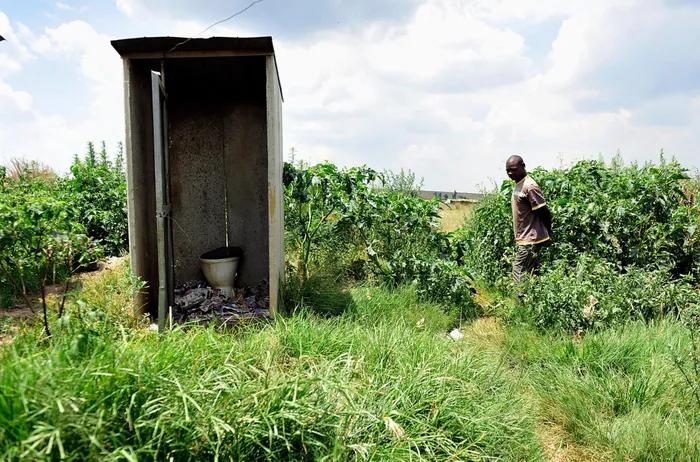Education minister sets sights on getting rid of pit latrines at schools by 2030

Many schools still use pit latrines such as this one, but on Monday November 20 Minister of Basic Education Angie Motshekga said South Africa aims to eriadicate pit latrines in educational facilities before the UN-designated year of 2030.
After decades of democracy in South Africa there are many schools that still use pit latrines. On Monday (November 20) Minister of Basic Education Angie Motshekga said South Africa is poised to turn the corner in eradicating pit latrines in educational facilities before the UN-designated year of 2030.
She said that, with World Toilet Day, having been marked on Sunday November 19, it was imperative to reflect on the critical role of sanitation in educational and social development - to restore dignity while ensuring the safety of learners and educators.
“The Sanitation Appropriate for Education (SAFE) initiative, spearheaded by the Department of Basic Education (DBE), represents a significant undertaking. It transcends the mere elimination of pit latrines, addressing broader issues at the core of adequate educational infrastructure and well-being,” said Ms Motshekga.
“This comes at a time when we’re emerging from the shadows of the Covid-19 pandemic, which significantly impacted all aspects of life, including the progress of essential sanitary projects in schools.
“Sanitation, fundamentally linked to human dignity, is critical to global health and well-being. The World Health Organization (WHO) underscores that safe drinking water, sanitation, and hygiene are not only essential for health.
“It also contributes significantly to livelihoods, school attendance, and the dignity of individuals, fostering resilient communities in healthy environments. Human Rights Watch amplifies this, stating that the right to sanitation ensures everyone is entitled to sanitation services that provide privacy and uphold dignity, said Ms Motshekga.
“The World Bank emphasises the necessity of investing in sanitation to prevent needless deaths, improve lives and livelihoods, and uphold human dignity. This is particularly poignant considering that around 4.2 billion people live without access to safely managed sanitation - with women and girls often bearing the brunt of this deprivation. The Hunger Project further highlights that a lack of access to sanitation is not only a health issue but also a matter of safety and human dignity,” she said.
Sanitation has now become a global priority, and efforts are being made to educate communities about its importance and to provide sustainable solutions like eco-toilets. Despite the importance placed on sanitation, Ms Motshekga admits that South Africa still lags behind when it comes to this basic human right.
“The pandemic highlighted the importance of hygiene and sanitation, which the DBE had been addressing through its emergency water programme and the SAFE initiative,” said Ms Motshekga.
“SAFE’s objective is not just a replacement of outdated pit latrines but a complete overhaul of the sanitation infrastructure in line with the norms and standards for school infrastructure.
“This overhaul is not merely about installing new toilet seats, which are determined by learner enrolment and include age-appropriate facilities for primary schools and those catering to the disabled. The scope of SAFE is extensive, encompassing the assessment of existing sanitation facilities, de-sludging and demolition of old pit toilets, construction of new, appropriate toilets, provision of rainwater harvesting systems, and the construction of accessible walkways.”
Alongside SAFE, the Accelerated Schools Infrastructure Delivery Initiative (ASIDI) targeted 1087 sanitation projects, all of which have been completed, the minister said. This achievement signifies a qualitative shift in the educational experience for millions of previously disadvantaged school children. The inclusion of children at the Grade R level in the education system underscored the need for age-appropriate sanitation facilities, she added.
“To date, 2978 out of 3898 SAFE projects have been completed since the programme’s intensification in 2019. SAFE emphasises the importance of hygiene education, ensuring that schools are equipped with better sanitation and the knowledge to maintain these standards,” said Ms Motshekga.
The urgency of this mission aligns with the United Nations’ UN Water directive, safe toilets and water for all by 2030.
Ms Motshekga said the DBE, with an expenditure of nearly R 3.7 billion, is confident in meeting these goals within the next two financial years.